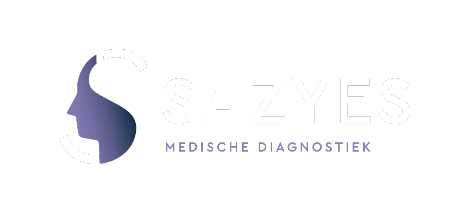
Psychiatric examination
A psychiatric examination is a psychiatric assessment in which an independent psychiatrist forms an opinion about the presence or absence of a psychiatric clinical picture. A psychiatric examination can take place in case of absenteeism and incapacity for work, as a second opinion or when assessing culpability. The examination can be supplemented with an insurance medical capacity examination.
Sazyes offers the following psychiatric examinations.

What is a psychiatric examination?
A psychiatric examination provides clarity at:
- questions about the presence or absence of a psychiatric disorder
- determining limitations in personal and social functioning
- stagnating recovery or reintegration
- evaluating of previous treatments and reintegration pathways
- identifying treatment options
- questions of legal liability, the culpability of certain conduct and willfulness

